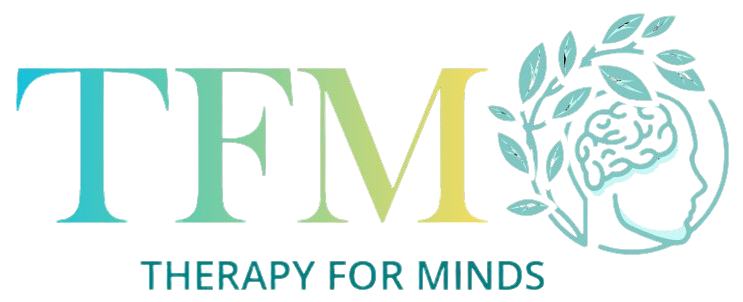Dialectical Behavioral Therapy (DBT): A Path to Emotional Balance and Personal Growth
In an increasingly stressful world, many individuals struggle with overwhelming emotions that can disrupt their relationships, work, and daily life. For people dealing with conditions like borderline personality disorder (BPD), suicidal thoughts, or self-destructive behaviors, finding the right therapy is crucial to achieving emotional balance and improving overall well-being. One of the most effective therapeutic approaches for managing intense emotions is Dialectical Behavioral Therapy (DBT).
Developed by psychologist Marsha Linehan in the late 1980s, DBT is an evidence-based treatment that combines traditional cognitive behavioral therapy (CBT) techniques with mindfulness and acceptance strategies. This approach focuses on helping individuals develop skills for emotion regulation, distress tolerance, interpersonal effectiveness, and mindfulness, ultimately leading to a more balanced and fulfilling life.
At Therapy For Minds, we are dedicated to providing high-quality, affordable DBT services, ensuring that individuals struggling with emotional regulation can access the therapy they need. In this article, we’ll explore what DBT is, how it works, and how our expert therapists can help you regain control of your emotions and improve your mental health.
What Is Dialectical Behavioral Therapy (DBT)?
Dialectical Behavioral Therapy (DBT) is a type of talk therapy that focuses on teaching individuals how to manage and regulate their emotions. The term “dialectical” refers to the idea of balancing two seemingly opposite forces: acceptance and change. DBT encourages clients to accept their emotional experiences as valid while also working towards changing behaviors that may be harmful.
DBT was originally developed to treat borderline personality disorder (BPD), but its effectiveness has since been proven in the treatment of a variety of mental health conditions, including depression, anxiety, post-traumatic stress disorder (PTSD), substance abuse, and more.
The therapy is structured around individual therapy sessions, skills training groups, phone coaching, and consultation teams for therapists to ensure high-quality and consistent treatment. DBT focuses on building skills in four key areas:
- Mindfulness: Being present in the moment and observing thoughts and feelings without judgment.
- Distress Tolerance: Learning to tolerate painful emotions without engaging in self-destructive behaviors.
- Emotion Regulation: Managing intense emotions in a healthy and constructive way.
- Interpersonal Effectiveness: Developing skills for improving relationships and communicating more effectively.
Why DBT Is So Effective
DBT is particularly effective for individuals who experience intense emotions that can feel out of control. It has been shown to help individuals reduce self-harm, manage suicidal thoughts, and improve interpersonal relationships.
Some of the key benefits of DBT include:
- Improved Emotional Regulation: DBT teaches individuals how to regulate their emotions rather than being overwhelmed by them. By practicing mindfulness and emotion regulation skills, individuals can gain better control over their emotional responses, leading to a sense of calm and stability.
- Reduction in Self-Destructive Behaviors: Many individuals seeking DBT have a history of self-harming behaviors or suicidal ideation. DBT has been proven to significantly reduce these behaviors by teaching individuals healthier ways to cope with pain and distress.
- Enhanced Relationships: DBT’s emphasis on interpersonal effectiveness helps individuals improve their relationships by teaching effective communication, conflict resolution, and emotional understanding. This leads to stronger, more fulfilling connections with others.
- Increased Mindfulness: Mindfulness practices allow individuals to become more aware of their thoughts, emotions, and reactions. This awareness is crucial for breaking the cycle of negative thinking and self-destructive behaviors.
How DBT Works: The Structure of Treatment
DBT consists of several components that work together to provide comprehensive treatment. Here’s an overview of how DBT is typically structured:
- Individual Therapy Sessions: In these sessions, clients work one-on-one with a trained DBT therapist to discuss their progress, challenges, and goals. The therapist helps the client apply DBT skills to real-life situations, offering guidance and support as the client works through difficult emotions.
- Skills Training Groups: In group settings, clients learn and practice the four core DBT skills (mindfulness, distress tolerance, emotion regulation, and interpersonal effectiveness). These groups provide a supportive environment where clients can share experiences and learn from others.
- Phone Coaching: Between sessions, clients can call their therapist for phone coaching to receive support in applying DBT skills to challenging situations in real-time. This ensures that clients have the tools they need to cope with difficult emotions outside of therapy.
- Consultation Team: DBT therapists often participate in a consultation team to ensure they are providing the best possible treatment. This helps maintain the integrity of the therapy and ensures that therapists have the support they need to effectively help their clients.
The Effectiveness of DBT: Research and Evidence
Research has consistently demonstrated the effectiveness of DBT in treating a wide range of mental health conditions, particularly borderline personality disorder (BPD). A landmark study published in the American Journal of Psychiatry found that DBT significantly reduced suicidal behavior, self-harm, and hospitalizations for individuals with BPD.
In addition, DBT has been shown to help individuals with:
- Substance abuse: DBT helps individuals address the emotional issues that contribute to addiction, leading to a reduction in substance use.
- Post-traumatic stress disorder (PTSD): DBT provides strategies for managing trauma-related emotions and memories, helping individuals heal from past trauma.
- Depression and anxiety: DBT teaches skills for managing the emotional dysregulation often associated with mood disorders, leading to improved mental health outcomes.
According to the National Institutes of Health (NIH), DBT has shown to be highly effective in reducing symptoms of BPD and other conditions, with many individuals experiencing long-lasting improvements in their emotional and interpersonal functioning.
How Therapy For Minds Can Help with DBT
At Therapy For Minds, we offer affordable, high-quality DBT services designed to help individuals regain control over their emotions and lead more fulfilling lives. Our team of licensed therapists is trained in Dialectical Behavioral Therapy and committed to helping clients achieve their emotional and mental health goals.
We offer online DBT sessions, making it easy for you to access therapy from the comfort of your home. Our affordable rates ensure that therapy is accessible to everyone, regardless of financial situation.
With Therapy For Minds, you can expect:
- Personalized DBT sessions tailored to your unique needs and challenges.
- A safe, supportive, and non-judgmental environment where you can freely discuss your emotions and struggles.
- Affordable therapy that focuses on making mental health care accessible to all.
Our therapists are dedicated to providing the highest level of care, ensuring that you receive the support and skills you need to manage your emotions and improve your relationships.
Conclusion: Take the First Step Toward Emotional Healing
Dialectical Behavioral Therapy (DBT) is a powerful therapeutic approach that helps individuals manage intense emotions, reduce self-destructive behaviors, and improve relationships. Whether you’re struggling with borderline personality disorder (BPD), anxiety, depression, or other emotional challenges, DBT can provide the tools you need to achieve emotional balance and personal growth.
At Therapy For Minds, we believe that everyone deserves access to high-quality, affordable therapy. If you’re ready to take the first step toward healing and emotional well-being, consider booking a session with one of our experienced DBT therapists today.





